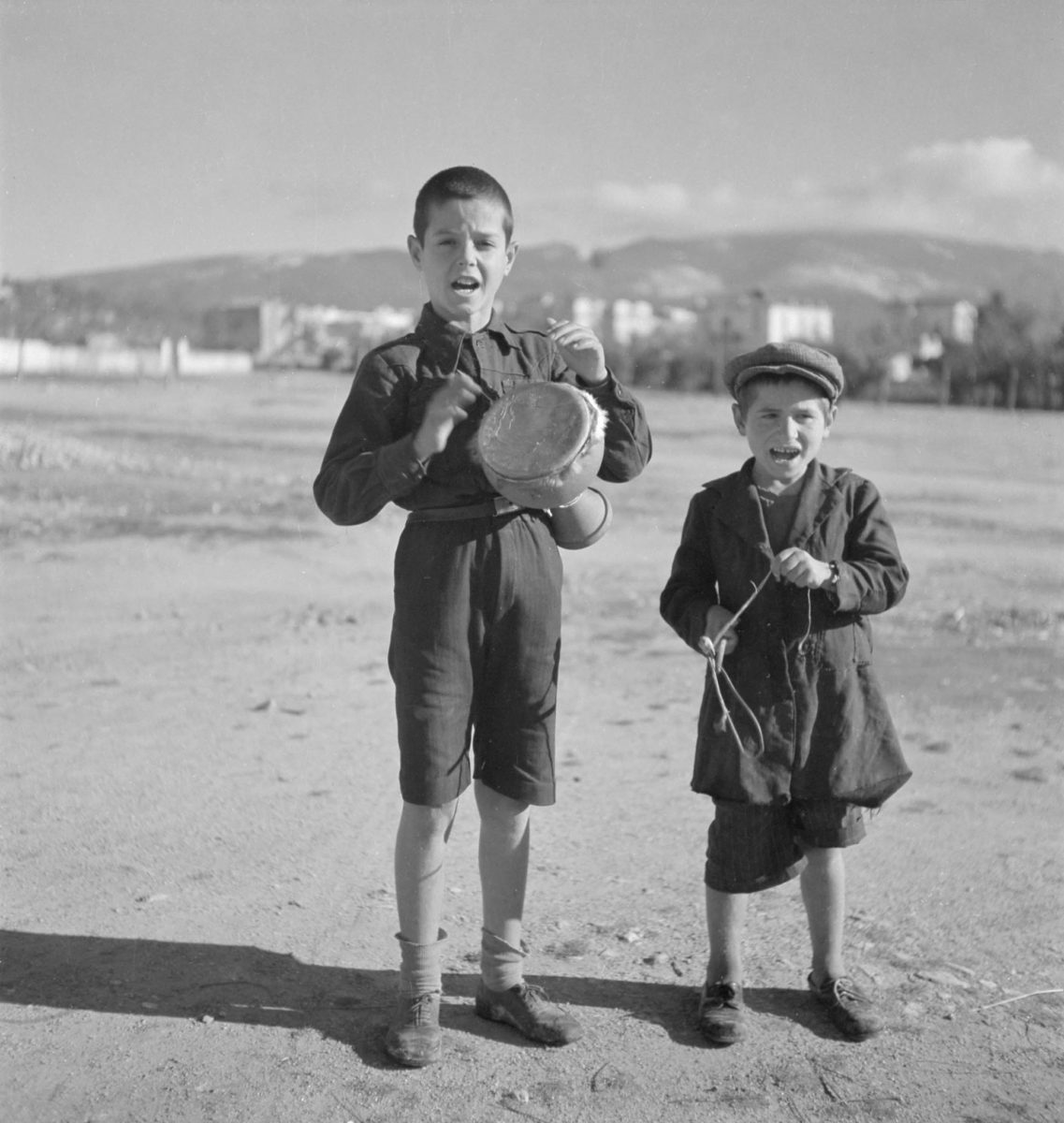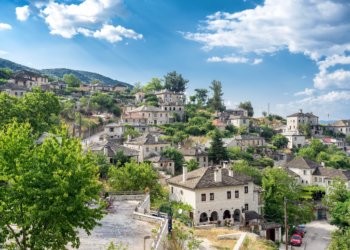Whether it’s the rosy-cheeked, hair-cropped kiddies of yesteryear clutching traditional Greek instruments and a boat, or the modern-era iPhone-armed youngsters of today donning the latest Gap wear, Greek children continue to this day – albeit several time-induced changes – to sing the carols, some dating to Byzantine times, on New Year’s Eve.
As with all traditions in this tiny land brimming with splendid diversity, so do the carols or kalanta differ from region to region, island to island, village to village. As one of my professors once said: “Where there are two Greeks, there will be three opinions.” So you can imagine how this applies to other aspects of Greek life, not to mention carols….
What Are Greece’s New Year’s Carols All About
The central motif is, for the most part, the same: wishes for love, peace, health, joy, and wealth, but depending on the region additional “needs” come forth, such as a safe return home (for the sea-faring), a plentiful bounty (for the farmers), abundance in wine and cheese (for the mountain folk), milk and honey (for the shepherds), and all these goodies are expected in the New Year with a little help from our friend… Agios Vassilis – a Greek (more solemn and much thinner) version of Santa Claus.
In the past, before the late 1980s and the introduction of Western-style (over)consumerism, Greeks offered gifts on New Year’s Day, the day marking “Agios Vassilis’” or St Basil’s name day.
Known as Saint Basil the Great, he was a bishop in Caesarea in Cappadocia – as the carols reveal – who was known mostly for his kindness to the poor and underprivileged. Unlike his rosy-cheeked chubby counterpart in the West, Agios Vassilis was tall, lanky, and thin symbolizing restraint and dedication.
So, once the bells toll on New Year’s Eve – nowadays, a bit later in the day due to modernity’s late-night pleasures – youngsters don their smiles, shiny triangles in hand, and set off to bring the good news to neighbors and friends.
In the days of old, and again depending on the territory, the carolers would also play the fiddle, the daouli (a traditional deep drum) common in the Macedonia and Thrace region, the ceramic drum, the stringed lagouto or the bagpipe. They would go door to door and after knocking would bid the lady of the house: “Na Ta Poume?” (Should we sing you the carols?”). The mistress would then say “Na Ta Peite” (Please Do…) and so the carolers would chant away their best wishes for the New Year. Once their song was over, she would offer them sweets and coins. And this tradition continues to this day.
The sheer happiness on the youngsters’ faces even today, when they zoom in on the coins in their hands, can only be compared to that cross-generational ice cream-eating face. Back then, they would run off to the single kafeneion (coffeehouse-cum-all-purpose shop) in the village to spend it on chocolate or candy. Today, it goes into the piggy bank for a trendy new iPhone case.
The traditional carols from Cyprus announce the start of a New Year on January 1 and ask that everyone follow the bright example of the enlightened one – Agios Vassilios from Caesaria.
From the isle of Ikaria herself, popular singer Eleftheria Arvanitaki performs her island’s version about wine, cheese, silver shelves, and lifelong beauty.

Source: thegreekvibe.com















